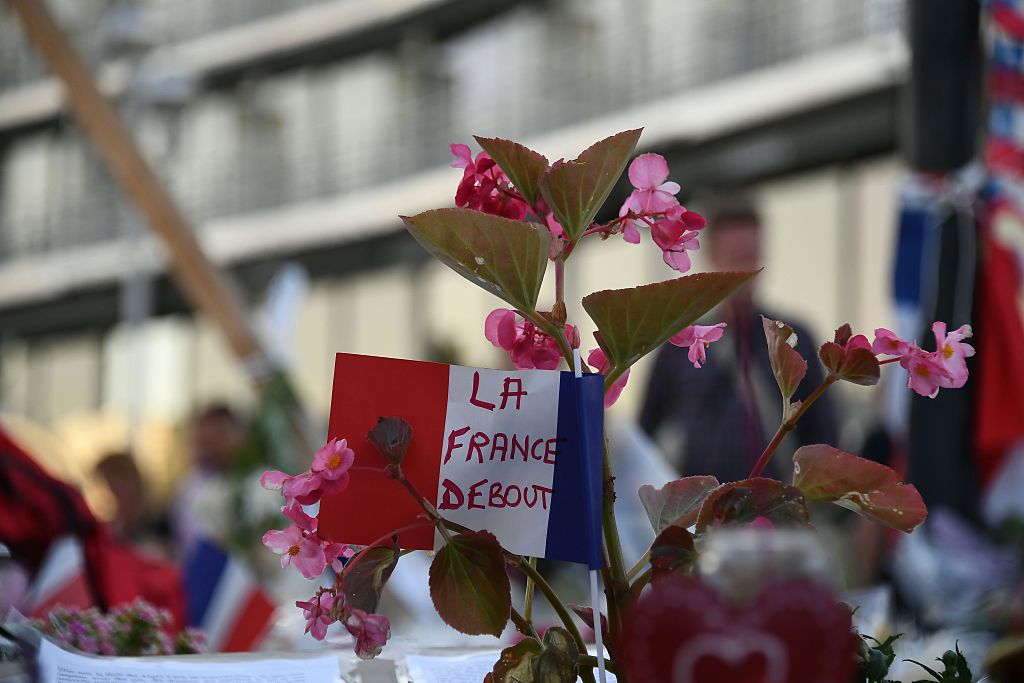Islamic State will be delighted by what happened outside Finsbury Park mosque in the early hours of Monday morning. In the space of three months they’ve achieved in Britain what they failed to pull off in France during five years, and provoked a retaliatory act.
This is what they want. When the Syrian intellectual, Abu Moussab al-Souri, published his 1600-page manifesto in 2005, ‘The Global Islamic Resistance Call’, his stated goal was to plunge Europe into a war of religion. Describing the continent as the soft underbelly of the West, al-Souri’s first target was France, the country he considered the most susceptible to fracturing along religious lines because it has the largest Muslim population in Europe, many of whom could be manipulated by both the colonial history of France and its strict secularism that outlaws ostentatious displays of religion.
European intelligence services underestimated the impact of Al-Souri’s message to European Muslims. They were channelling their resources into preventing a ‘spectacular’ similar to 9/11 but what they couldn’t know was how social media – particularly YouTube, launched in the same year as al-Souri published his manifesto – would provide extremists with the means to poison the minds of impressionable young men.
The first foot soldier inspired by Al-Souri was Mohammed Merah, the French-Algerian who went on the rampage in March 2012, singling out Muslim soldiers and Jewish schoolchildren for execution. There was then a three-year hiatus before the Kouachi brothers slaughtered the staff of the satirical magazine, Charlie Hebdo, 24 hours before one of their associates, Amedy Coulibaly, gunned down a policewoman and then shot dead four customers in a Jewish supermarket in Paris.
It was in the immediate aftermath of the Charlie Hebdo killings that France was at its most divided; across the country some Muslim schoolchildren refused to stand for the national minute’s silence because in their eyes the cartoonists had been rightly punished for their blasphemy. French politicians were alarmed, fearful that the country was in the process of fracturing. But it didn’t. Laïcité is a strong glue, and the French possess the intellectual maturity to have conversations with its Muslims that other countries find ’embarrassing’.
Angry that they hadn’t provoked the French, the Islamists broadened the scope of their attacks but in doing so they doomed their strategy to failure. The co-ordinated attacks in Paris on November 2015 targeted the ‘capital of abomination and perversion’, but among the dead were several Muslims. Many more would have perished had the suicide bombers gained access to the Stade de France that evening, but nonetheless the botched attempt to kill football supporters was a gross miscalculation. ‘In targeting the young at the Stade de France, where a great number of spectators came from immigrant Muslim backgrounds and lived in Seine-Saint-Denis, they were alienating the potential sympathisers that they wished to attract’, said the political scientist Gilles Kepel. ‘The logic of Jihadist terrorism is on the one hand to terrorise the enemy but also to recruit supporters’.
The Islamists didn’t learn from their blunders. Thirty of the 86 people run down by Mohamed Lahouaiej-Bouhlel’s truck in Nice during the 2016 Bastille Day celebrations were Muslim. Then, ten days after the attack in Nice, 84-year-old Father Hamel had his throat slit by two teenage Islamists in his quiet Normandy church, a crime that Dalil Boubakeur, rector of the Great Mosque of Paris, said ‘shamed humanity’.
Far from dividing French society with their campaign of terror, the Islamists have actually brought the country closer together. Government figures reveal that in 2016 ‘racist, anti-Semitic and anti-Muslim acts and threats’ dropped by 44.7pc compared to the previous year; while Marine Le Pen failed in her bid to become president and only eight of her National Front party were elected to parliament. Admittedly, that’s eight more far-right politicians than sit in the House of Commons but better a nation vents its anger at the ballot box than behind the wheel of a van.
Consequently, the Islamists have stopped targeting civilians and switched their focus to the men and women who serve the French state. Monday’s attempt to blow up a police van in Paris was the fifth attack on the security forces in 2017, following incidents at the Louvre, Orly airport, Notre Dame cathedral and the fatal shooting of a policeman on the Champs-Élysées in April. Two of the attacks were carried out by foreigners and one by a man with a long history of violence against the police.
No one in France is naive enough to believe that the Islamists will never again attack civilians but Gilles Kepel senses that ‘Jihadi Fatigue’ has set in among this current generation of French extremists. They have tried and failed to fracture France, and now they are up against a new president whose holistic approach to his country’s Muslims is intended to further alienate the extremists.
On Tuesday evening, Emmanuel Macron dined with members of the French Council for the Muslim Faith (CFCM) as they broke their daily Ramadan fast. It was a first for a French president and for Macron it was an opportunity to show his gratitude for the Council’s support during his presidential campaign. But there was another reason for his presence. Macron told his hosts that he believes Islam is compatible with French values; what isn’t, however, ‘is the form of Islam that organises a segregation within the Republic, isolating itself from the rest of us, because to base a political and social identity only on faith is to acknowledge that that faith is not compatible with the Republic’.
This ‘perversion’ of Islam wouldn’t be tolerated, said Macron, who called on his audience to work with him ‘in maintaining national unity’ in the face of the extremists. Having failed to find Europe’s soft underbelly in France, Islamic State have turned their attention to Britain, and the alleged actions of Darren Osborne will delight them as much as those of Salman Abedi and Khuram Butt.







Comments